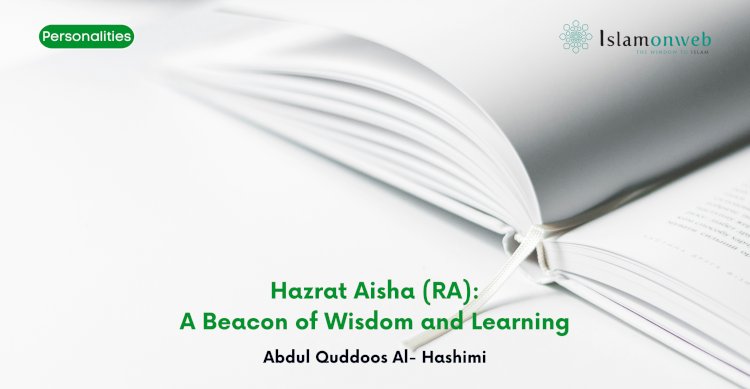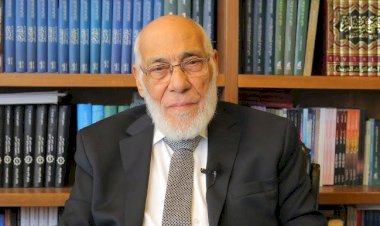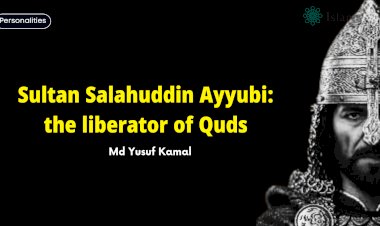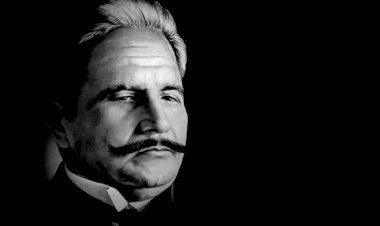Hazrat Aisha (RA) : A Beacon of Wisdom and Learning - Part 2
Despite Aisha's (RA) remarkable qualities, she couldn't help but feel a tinge of jealousy towards Khadijah (RA), despite never having met her. This jealousy was evident in a conversation Aisha once recounted. She mentioned that whenever the Prophet Muhammad ﷺ left the house, he would always speak highly of Khadijah. One day, when he did so, Aisha couldn't help but feel envious. She exclaimed, "Was Khadijah anything more than an old woman whom Allah has replaced with someone better than her?!" In saying this, she was indirectly referring to herself as the replacement.
Aisha (RA) recognized that she couldn't compete with Khadijah (RA) in the Prophet'ﷺs heart emotionally. She knew that his affection for Khadijah was deep-rooted. Instead of feeling defeated, she decided to excel in areas where she could make a difference. She immersed herself in learning and understanding the teachings of the Prophet, aiming to contribute to his mission. Aisha (RA) understood that Khadijah's support was crucial, and she wanted to be capable of continuing that support even after Khadijah was gone. Aisha (RA) wanted to be capable of preserving his message after him and transmitting his teachings to the people.
Aisha (RA) 's boldness and sharpness were notable traits she inherited from her father, Abu Bakr. This sharpness was evident in her interactions. When falsely accused by slanderers, Aisha (RA) boldly declared that she would only thank Allah and not anyone else. This sharpness led Aisha (RA), when her mother instructed her to thank the Prophet ﷺ after he had exonerated her from the accusations of the slanderers, to boldly declare, "By Allah, I will not stand up to him or thank anyone but Allah!" (Sahih al-Bukhari).
Read Also: Part 1 - Aisha, Mother of the Faithful: The Scholarly Persona and Literary Critique
No one could confront her in her moments of sharpness or silence her. In Sahihain, it's narrated that the Prophet ﷺ's wives sent his daughter Fatimah (d. 11 AH/633 CE) and then his wife Zaynab to request equal treatment to that of Aisha (RA. Zainab started talking about Aisha (RA) , but when Aisha (RA) felt that the Prophet ﷺ didn't disapprove of her defending herself, she responded forcefully until she silenced Zainab. Aisha (RA) said, "When I started confronting her, I didn't allow her any time, I responded immediately," and the Prophet ﷺ smiled and said, "She is the daughter of Abu Bakr," admiring her "perfect understanding and good insight," as stated by Imam Nawawi (d. 676 AH/1277 CE) in his explanation of Sahih Muslim.
Aisha (RA) didn't shy away from sharing intimate details of her life with the Prophet ﷺ. She narrated incidents like the Prophet ﷺ kissing her and sucking her tongue, showing her comfort in expressing such personal matters for scholarly purpose. it's mentioned in Sunan Abi Dawud: "When the Prophet ﷺ kissed one of his wives, he would suck her tongue."
In narrating such incidents, she wasn't just recounting events but also highlighting her own experiences and perspective. Aisha (RA)'s boldness wasn't just about defending herself but also about imparting knowledge fearlessly. She became known for her critical thinking and willingness to engage in scholarly debates among the companions. Similarly, her narration about racing the Prophet ﷺ, where she initially outran him due to her agility, reflects her spirit: "When meat weighed me down, he surpassed me " (Musnad Ahmad and Sunan Abi Dawud).
Broad Perspective
As we explore various aspects of Aisha (RA) 's personality, it's crucial to highlight a unique quality she possessed: her human integrity. This refers to her adeptness in managing her emotions and feelings towards others with fairness, knowing precisely where emotions should give way to reason.
One clear illustration of this is her relationship with Ali ibn Abi Talib, may Allah be pleased with him. Despite a strained moment between them during the incident of the slander (Ifk) in 627 CE, Aisha (RA) maintained her composure and respect towards Ali. When the Prophet ﷺ consulted Ali about what to do, Ali (R) had gestured towards divorcing her. Though she refrained from openly mentioning his name after the incident, she acknowledged his superior knowledge and piety in religious matters. Shuraih ibn Hani reported that Aisha (RA) said, "Consult Ali, for he knows more about it than I do" regarding the wiping over the socks (Masah alal Khuffain) (Sahih Muslim).
Another instance showcasing her emotional control and fair judgment was her handling of the poet of the Prophet ﷺ, Hassan ibn Thabit. Aisha (RA) didn't forget his role in the ‘ifk’ incident, even after he apologized to her and praised her. At the same time, She didn't shy away from acknowledging his efforts and defense of the Prophet ﷺ. When her cousin Urwah ibn Az-Zubair insulted him in her presence, she warned him, saying, "Don't insult him; he used to defend the Messenger of Allah" (Sahih al-Bukhari), thus demonstrating her ability to separate personal conflicts from professional admiration.
Aisha (RA) 's integrity also extended to her impartiality in assessing talent and character. She made a fair judgment in favor of Marwan ibn al-Hakam over her own nephew Urwah in a poetic competition, showing consistency in her commitment to fairness.
Her keen understanding of people's characters and her precise judgment of men's qualities were evident. Abu Shuja' al-Dailami reported her saying, "Adorn your gatherings with the mention of Umar ibn al-Khattab." She also mentioned three Ansari men and their exceptional qualities, showcasing her discernment of people's ranks. Despite her scholarly disagreements with Abu Huraira, she respected his knowledge and virtue to the extent that she requested he lead her funeral prayer upon her death.
One of the meanings we find in the biography of this versatile and knowledgeable woman is her avoidance of affectation, which later appeared in Islamic scholarly circles, where there was an artificial attempt to create a dignified persona for the scholar that deviated from human nature.
Therefore, Aisha (RA) , sought-after by the companions for religious guidance, didn't hesitate to talk about women's nature when necessary. She once said, as narrated by Al-Dhahabi in "Siyar A'lam al-Nubala'," that the Prophet ﷺ came to her on a day that wasn't his usual day for visiting her, and she heard him knocking. She waited for a while and then opened the door. The Prophet ﷺ asked, “didn’t you hear I am knocking the door?” she replied, "Yes, but I wanted women (other wives of prohphet) to know that I was visited on a day that wasn't my usual day!"
Despite her Islamic upbringing from childhood, Aisha (RA) was socially open to people of other faiths. She associated with Jewish women who would visit her, converse with her, and sometimes even treat her illnesses. However, when their conversation veered into beliefs or religion, her critical faculties were engaged. Imam Malik reported in "Al-Muwatta" that Abu Bakr entered while Aisha (RA) was complaining, and there was a Jewish woman treating her. Abu Bakr said, "Treat her with the Book of Allah."
In a hadith reported by Muslim, Aisha (RA), said: "Two elderly Jewish women from Medina entered upon me, and they claimed that the people of the graves are being punished in their graves. I contradicted them and didn't believe their claim. Then they left, and the Messenger of Allah, peace be upon him, entered, and I said to him: 'O Messenger of Allah! Two elderly Jewish women from Medina entered upon me, and they claimed that the people of the graves are being punished in their graves!' The Messenger of Allah, peace be upon him, said: 'They spoke the truth. Indeed, they are punished with a torment that animals can hear.' Then she said: 'After that, I never saw him perform a prayer except that he sought refuge from the punishment of the grave.' In another narration: She said: 'He did not perform any prayer after that except that I heard him seek refuge from the punishment of the grave.'"
Her openness to people of other faiths, such as Jewish women, exemplified her social inclusivity. While engaging with them, she maintained her critical faculties, ensuring discussions remained respectful and focused.
Overall, Aisha (RA) 's extensive knowledge and remarkable character set her apart as a prominent figure in Islamic history. Her commitment to truth, fairness, and authentic interactions serves as an enduring example for generations to come.
Academic Authority
Let us now examine the features of her scholarly personality and her diligence in understanding the texts of Islamic law, as well as the jurisprudential patterns in which she excelled in issuing legal opinions. Ibn al-Qayyim, in "I'laam al-Muwaqqi'een," elucidated her position among the prominent jurists among the Companions, saying: "The number of Companions from whom legal opinions were preserved is 133 individuals, both men and women. Among them were seven who were prolific: Umar ibn al-Khattab, Ali ibn Abi Talib, Abdullah ibn Mas'ud, Aisha (RA), Zaid ibn Thabit, Abdullah ibn Abbas, and Abdullah ibn Umar."
Al-Tirmidhi narrated in his Sunan from Abu Musa al-Ash'ari that he said: "Never did any religious issue perplex us, the companions of Muhammad (peace be upon him), except that when we asked Aisha (RA), we found knowledge with her concerning it." Aisha (RA) was renowned for narrating jurisprudential rulings extensively, to the extent that Al-Hakim al-Naysaburi, as reported by Imam Badr al-Din al-Zarkashi in his book, mentioned that "a quarter of the Shariah was transmitted from her."
According to statistics provided by Imam al-Dhahabi, in the biography of Aisha (RA) in "Siyar A'lam al-Nubala," the total number of Hadiths in "Musnad Aisha (RA) " amounts to 2210. Both Bukhari and Muslim agreed on 174 Hadiths from her, with Bukhari exclusively reporting 54 and Muslim 69. This indicates that the total number of her Hadiths in the Sahih collections is 297. Imam and Hadith scholar Badr al-Din al-Ayni in his explanation of Sahih al-Bukhari says that hadiths reported by Aisha (RA) "excluding a few, all were rulings."
Aisha (RA), may Allah be pleased with her, engaged in differences with esteemed Companions and rectified them in sixty-one instances. Out of these, thirteen Hadiths associated with Abu Hurariah, followed by Abdullah ibn Umar with ten issues. Subsequently, Umar ibn al-Khattab and Ibn Abbas each had eight issues, while the remaining topics were spread among other Companions. These corrections were meticulously documented by the researcher Fatima Qashoori in her book "Aisha (RA) in Hadith and Biographical Collections." Preceding scholars also compiled such rectifications. For example, Abu Mansur al-Baghdadi authored a book on this subject, though it hasn't reached us. Additionally, Imam al-Zarkashi composed his book titled "Al-Ijaba li-Irad Ma Istadrakatuhu Aisha ala al-Sahaba" ("The Response to What Aisha (RA) Corrected Among the Companions").
Aisha, as documented by al-Dhahabi, is known to have interacted with 177 prominent figures of her time, including 18 women and numerous men, who were either Companions or Followers (Tabie). She understood her role as a custodian of Prophetic teachings and recognized the vital need for her guidance among knowledgeable women. Many aspects of women's jurisprudence remained obscured to male scholars among the Companions. Thus, she proactively engaged in critiquing Abdullah ibn Amr ibn al-As for his generalized fatwa, which overlooked the specific challenges women would face if it were followed. Aisha (RA) rectified his understanding, highlighting the potential difficulties it would impose.
Muslim narrated in his Sahih that Aisha (RA) was informed that "Abdullah ibn Amr ibn al-As orders women, after performing ghusl (ritual bath), to undo their hair. She exclaimed, 'How strange! Ibn Amr orders women, after performing ghusl, to undo their hair? Shouldn't he command them to shave their heads? I used to perform ghusl alongside the Messenger of Allah ﷺ from the same vessel, and I only poured three handfuls of water over my head.'"
Disclaimer
The views expressed in this article are the author’s own and do not necessarily mirror Islamonweb’s editorial stance.
1 Comments
-

This article has flaws ali ra never said divorce aisha ra rather his full quote was I know aisha ra is innocent but right now people are emotional to calm them down give aisha ra a single talaq once we find the evidence of her innocence which he ali ra was 100 % sure they will he said the prophet saw can then take her back Sayyidina ‘Ali’s statement, “Ask the slave girl, she will tell you the truth.” This implies that he knew Rasulullah salla Llahu ‘alayhi wa sallam valued Sayyidah Aisha radiya Llahu ‘anha. Accordingly, he motioned him to remove this bitter grief by listening to someone who remains with her and knows her private life, i.e. her slave girl who serves her. Had Sayyidina ‘Ali radiya Llahu ‘anhu harboured ill feelings towards our Mother, he would have sufficed by advising Rasulullah salla Llahu ‘alayhi wa sallam to separate from her. In fact, he would have emphasised his point by mentioning the reasons and enforcing his advice. However, he moved over to the second piece of advice, which shows his preference of it. The slave girl testified to her goodness and duly praised Sayyidah Aisha radiya Llahu ‘anha. Thus, Rasulullah’s salla Llahu ‘alayhi wa sallam heart was comforted, and Sayyidina ‘Ali’s radiya Llahu ‘anhu advice turned out to be fruitful. Studying the above, you will realise that his advice was not an indictment against Sayyidah Aisha radiya Llahu ‘anha, Allah forbid, but rather a testament in her favour. Therefore, the Shia using it to prove their warped ideologies is erroneous. ‘Ali radiya Llahu ‘anhu did not say anything bad about Aisha radiya Llahu ‘anha that would give the slightest indication that he doubted her morals. Even though he said to Rasul salla Llahu ‘alayhi wa sallam: “Allah has not made things restricted for you”[75], he followed that by advising him: “If you ask her slave woman, she will tell you the truth.”[76] He recommended that he investigate before separating from her; in other words, he retracted his first advice to separate from her and suggested that instead of that, he could ask the slave woman and find out truth.[77] The Rasul of Allah salla Llahu ‘alayhi wa sallam asked the slave woman, who was very close to Aisha radiya Llahu ‘anha, and she confirmed that she did not know anything but good about her. On the same day, the Rasul of Allah salla Llahu ‘alayhi wa sallam went out to the people to ask for support against ‘Abdullah ibn Ubay, saying: O Muslims, who will support me against a man who has offended me with regard to my family? By Allah, I know nothing but good about my family.[78] Therefore ‘Ali’s advice was in Aisha’s radiya Llahu ‘anha best interest, as Rasul salla Llahu ‘alayhi wa sallam became more convinced of what he already believed about his wife’s innocence.[79] ‘Ali’s attitude concerning the slander incident was not something that made Aisha radiya Llahu ‘anha angry with him or made her carry a grudge that led her to falsely accuse him of murdering ‘Uthman radiya Llahu ‘anhu and go out inciting huge numbers of Muslims against him, as claimed by many researchers who based their claims on the reports fabricated by Rafidi Shia.
























Leave A Comment